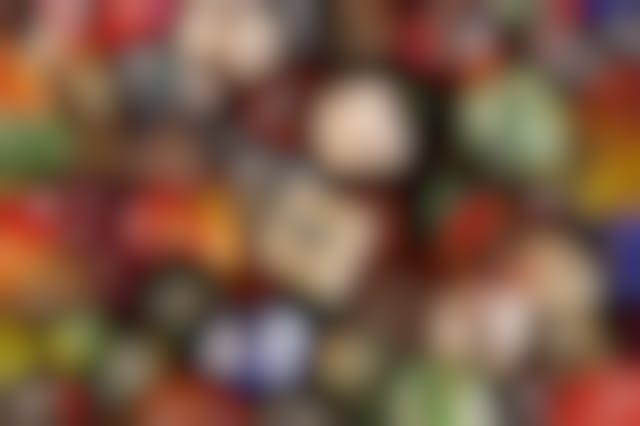
I asked Sean Hanley what his actual title is here at Thoughtlab and this was his answer:
“I mostly find titles to be an exercise in ego so I prefer to downplay them in my own career. I’m perfectly fine with just the label of “Developer or “Software Developer” if you prefer the two-word combo.”Quote:
Where most people would say I’m a developer, I’m a sales rep or I’m a Horologist, Hanley takes time and actually thinks about his answers. This perhaps comes from the fact that not only is he an excellent Developer, or Software Developer, if you prefer the two-word combo, he is also a writer. But would he actually call himself a writer?
He’s from Arkansas. Mountain Home, Arkansas, to be precise, home of Rear Admiral Richard Antrim, WWII Veteran, and Medal of Honor recipient. There’s an old saying: “you can take the boy out of Arkansas but it takes a crack surgical team and twelve thousand gallons of coffee to take Arkansas out of the boy.” And the recovery time is a nightmare. I don’t know if it’s a real saying but, it is now.
He had a normal childhood, probably grew up reading the Baxter Bulletin, listening to 99.7, The Boot or KCTT Classic hits. He played computer games and was interested in the computer. In college, his first year, he was a slacker and had no declared major. Then in year two, he decided on computer science with a creative writing minor. He did not do a double major. See, slacker. But the combination of science and the arts would never leave his life. Even now, he longs to write quasi-erotic fiction about fresh fruits, Camelidae and a secret code that makes ne’re do well small town Mayors do naughty things and seek redemption in cornfields.
Only some of that is true and only he would tell you which parts.
In college, he was inspired by Mr. Smith, a teacher who had been in the working world til he was 40 and left to teach. This exotically named teacher introduced Sean to the practical side of the computer business. Not so much the pure science as the practical skills of coding, debugging code and the get a job, pay the bills, have some money left over for booze and slide rulers, type skills. Sean took as many of Mr. Smith’s classes as he could.
In many ways, Sean forged his own education. Having digested the practical skills from Mr. Smith, he spent a lot of his free time reading: “Weblogs, that’s what they were called, you know, before they were called blogs,” he tells me and I nod pretending I knew that but really making a mental note to impress my next date with this nugget of knowledge. Side note, she wasn’t. At all. But, he read blogs and articles by coders and people just thinking out loud. This is how he successfully bridged the gap between the intellectual part of computer science and the practical, pay the rent world of being a coder.
Sean is, among other things, thoughtful. By this, I don’t mean he’ll remember your birthday and get you that thing you talked about once in passing during a D&D session, most likely not. Sentiment and frippery are not high on his list of things to give attention to. When I say he is thoughtful I mean he truly thinks about things. Not once during our time chatting did he give a snap answer. Questions were taken in and answers were long and well thought out.
When I found out he was a writer in college and I asked if he still writes his response was deep and, surprise, well-considered. He has a respect for those writers who can make a living at it, who have honed their skills and have a voice that people want to hear. His passion for Douglas Adams and everything he’s written, sent him to put pen to page and write papers that teachers in school told him had a sardonic sort of voice and humor to them. He continued writing for a good decade and then, in his usual thinking manner decided that, although anyone can self publish on Amazon, 80% of that was crap and he didn’t think he had the skill to be one of the 20% so, he set the writing aside. But, there is hope, he does believe that at some point, he will go back to it, maybe when he has retired from the development game.
The more I listen to him and the more I read his responses to some questions, the more I hope he does.
Another example of his thoughtfulness is the question of drinking. I caught wind that he was a little sad that we didn’t ask him about his favorite bar, his drinking habits and such so I shot him a quick SLACK, asking those very questions and, as you’d imagine, his answer was well-considered and detailed. A paragraph about his love of beer but his curious battle with the taste of it returned, equating their taste to “various formulas of household cleaner and paint thinner” and guessing that perhaps he liked the “palette punishment". Still, he likes beer, gravitating toward dark stouts or porters and hoppy India pale ales.
As for when the best time to drink is he points to crazy special occasions as examples: Utah Beer Fest, Oktoberfest, SantaCon or even the mundane, it’s a Friday night and time to crack open a beer and play multiplayer games with friends on voice chat.
When it comes to games his go-to is Heroes of the Storm, the multiplayer online battle arena, developed by Blizzard Entertainment. I remark that there’s a lot of smack talk for fun and real anger that happens when engaging in multiplayer games, especially when strangers are involved but, Sean has a way of dealing with all that. He approaches it from a friendly point of view, trying always to be positive. It is, after all, a game, he says and we’re here to have fun. He questions why people want to be angry, why they make the choice to bring anger to a game and sometimes, he’ll coax or provoke that anger in an attempt to get the angry individual to maybe see they are being a little silly and taking the game far too seriously for their own good. Does it work? “Sometimes,” he says, “and sometimes they just get angrier.” He shrugs and you can see he is taking that apart in his head, wondering why someone wants to be so angry at a game. “I mean, it’s a game,” he concludes, “don’t you want to play and have fun?”
When faced with the age-old question of ‘tabs’ or ‘spaces’, there is only one correct answer and it’s tabs. No further questions on that subject, thank you and good-night.
His favorite part of programming? Fulfilling that “boyish desire to create”. He likes thinking up a way to make something happen and then doing it. He likes having something to point at and say: “I did that” and anyone who knows the business can then look under the hood and say, “oh, you did it that way, that’s neat.” Yes, he actually used the term neat and that’s just swell.
There is a wonderful, warm, dichotomy about his favorite project for ThoughtLab. I would have assumed it was something with byzantine code demands and days of intricate, heads down dedication. Not so. He admits that his favorite project may not have been that interesting from a programmer’s point of view but for him, it was a joy. He is speaking of the work ThoughtLab did for the Children’s Miracle Network. Not as technically challenging as other projects he has worked on but the Miracle Network itself does so much good, has touched so many lives, that he counts it as one of his favorites. His other favorite is a robot lackey he created to do menial tasks around the office and plot the death of the copywriter.
“I loved being around the creative types, watching them just come up with ideas or … an artist would say I’m going to paint in oils, never having done that before and he’d just …. Do it. I found that … that spontaneity very exciting.”Quote:
Sean looks at the arts with a certain amount of awe. He admired writers who didn’t endlessly refine but who could just lay it out on the page and let it go. He never felt comfortable with that. Always tinkering, always refining. But he always enjoyed being around creatives.
There’s an interesting hesitance to putting himself in the frame of a creative, yet, he writes, he is a dungeon master, creating adventures for people to go on. But for some reason, he doesn’t seem to see that he is creative. He doesn’t count himself among “those creative types”. He doesn’t recognize that his spontaneous reactions, his humor, which is dark, quick and insightful in its absurdity, is the very definition of creative. It’s not a case of false modesty, he holds the creative up as a goal, as an “other” of sorts, something he hasn’t achieved it. Not yet. He is very respectful of it and you can tell he has not given up on it completely. But, things have to be done. A living has to be made. That’s the practical side of him.
Would Sean tell you he is a writer? No, he most likely wouldn’t, denying himself the title because of some self-imposed level of skill that has to be reached to be able to wear that moniker. But his heart is very passionate about the written word. His choice of spoken words, his thoughtful contemplation of answers and his observations of the world around him would certainly say otherwise. So, he will say he is a Software Developer, which he is and we here at the lab are certainly grateful for that, but make no mistake, there is a writer in there, waiting for retirement, waiting for the right time to come out and dazzle us. Hopefully, he doesn’t wait too long.


